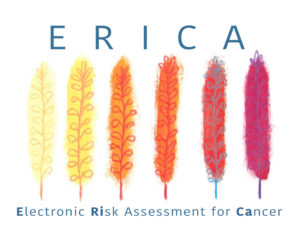The economics of cancer: Evaluation of the equity and efficiency trade-offs in colorectal, lung and ovarian cancer (PhD)
Start Date Oct 2019
Code E14-Aff, PhD
Status Ongoing
Cancer represents a significant healthcare burden in the UK, where it is associated with an estimated 5% of total medical expenditure. Between 2014 and 2016 there were an estimated 363,000 incident cancer cases each year, with incidence only estimated to increase over the next decade. Although, in recent years there has been a significant improvement in mortality rates across the majority of cancers, driven predominantly by an ever-evolving therapeutic landscape and earlier diagnoses. The introduction of several nationwide screening policies, the emergence of ‘targeted’ therapies and a shift in focus towards personalised care have also contributed to such improvements. However, concerns remain over the provision of equitable cancer care.
The World Health Organisation champions the need for equity of health determinants and access to the resources needed to improve and maintain health. Despite the objectives of improving equitable care access, equity considerations are not typically incorporated in economic assessments, with cost-effectiveness analysis and reimbursement decisions predominantly driven by clinical and cost efficiency, from the perspective of maximising population health. Amongst other things, the limited consideration of equity concerns in cost-effectiveness analysis may be driven by a paucity of relevant data from which to inform analyses, the difficulty in the interpretation of results and the lack of consensus over preferences for equitable distribution. Consequently, there is a need for further consideration and development of cost-effectiveness frameworks that incorporate equity considerations, particularly in the field of cancer; however, prior to this there is a need to further understand the current evidence base from which such frameworks may be developed.
Funding
Dennis and Mereille Gillings Foundation.
Aims & objectives
The aim of this thesis is to explore how equity issues may be included in economic evaluations for cancer screening, diagnosis and treatment and how effective policies are at encouraging more efficient and equitable healthcare use in the UK. We focus on the distribution of outcomes based on socioeconomic status and geographical location, and consider such issues in the context of colorectal, lung and ovarian cancer, each of which has their own unique screening, diagnostic and treatment characteristics.
Methodology
The research will entail six phases:
- A review of published NICE Technology Appraisals (TAs) evaluating the extent to which the impact of heterogeneity and equity are currently considered
- A systematic review of approaches to evaluating equity in cost-effectiveness analyses
- A rapid review and summary of equity measurement metrics
- Quantification, using observational data, of the impact of socioeconomic status and geographical location on survival and resource use outcomes for colorectal, lung and ovarian cancer; data is available from Clinical Practice Research Datalink (CPRD), the Cancer Registry and the NHS Hospital Episodes Statistics (HES) datasets
- Development of an economic analysis framework for incorporating equity considerations of colorectal, lung and ovarian cancer
- Evaluation of the real-world equity impact of UK policy decisions in colorectal, lung and ovarian cancer using the developed framework
Outputs & impact
The legacy of this thesis will be twofold: first, an improved understanding of the equity and efficiency trade-offs in colorectal, lung and ovarian cancer; and, second, development of a formal framework, to incorporate heterogeneous patient outcomes within health economic evaluations of cancer.
We will report our findings in appropriate peer reviewed journals in addition to subject-specific conferences. Furthermore, Twitter and Research Gate may also be utilised to further communicate our study results with the scientific community.
Next steps
Having completed the review of NICE technology appraisals and started the systematic review of approaches to evaluating equity in cost-effectiveness analyses, the most imminent next steps are as followed:
- Submission of NICE technology appraisal review manuscript draft to peer-reviewed journal
- Completion of the systematic review of approaches to evaluating equity in cost-effectiveness analyses
- Completion and submission of an Independent Scientific Advisory Committee (ISAC) protocol to the Clinical Practice Research Datalink (CPRD) in order to request linked patient-level data
Related projects



